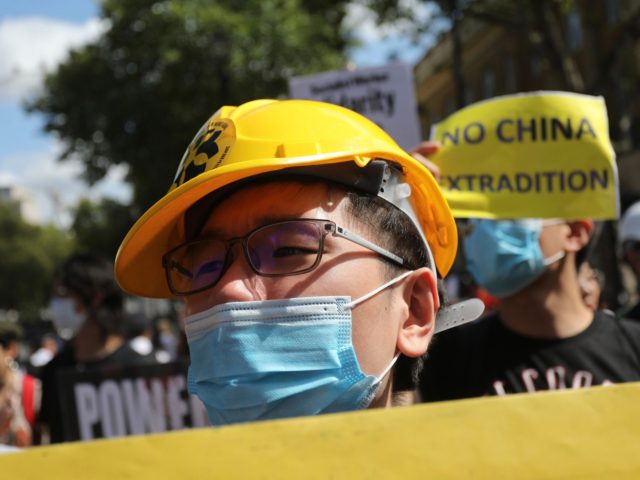A British university has told professors to not record lectures or class discussions on issues surrounding the Chinese Communist Party (CCP) in order to safeguard students from being imprisoned if they travel to Hong Kong or the Chinese mainland.
SOAS University of London — formerly the School of Oriental and African Studies — warned academics that class recordings, lecture notes, or laptops containing course material could be used against professors or students should they step foot on Chinese soil.
The draconian national security law imposed on the former British Crown Colony of Hong Kong “covers foreign nationals, overseas behaviour, and speeches” — meaning that any acts deemed “seditious” said by anyone in any country could lead to lengthy prison sentences.
The advice, which was seen by The Times, said: “How we teach China is potentially affected by this law, with some of what we normally do now liable to prosecution. The law is vague about what constitutes subversion, making the implications even more worrying.
“A whole host of topics are potentially off-limits because of this law, topics that lie at the heart of the social sciences and humanities . . . ethnicity, sovereignty, identity, the quality of governance etc.
“Teachers and students on China-related modules could therefore find themselves deemed criminals because of their verbal or written statements pertaining to many topics such as Taiwan, Hong Kong, social movements, the party-state’s handling of coronavirus, ethnic unrest, ethnic identities, language policy, state surveillance, the implications of President Xi extending his term indefinitely etc.”
The guidance said that recordings should not be made of class discussions, but added that “Self-censoring in order to avoid such risks is, needless to say, unacceptable and should not be contemplated.”
British Universities Comply with Chinese Internet Censorship https://t.co/jnL9H1L157
— Breitbart London (@BreitbartLondon) July 10, 2020
Speaking to Breitbart London, the founder and chairman of Hong Kong Watch, Benedict Rogers, said: “As a SOAS alumni this is a particularly sad day. The guidance by the SOAS authorities is understandable in the circumstances, but it is a sad reflection of the dangers of the Chinese Communist Party regime.
“We all have to wake up to the threat Xi Jinping’s regime poses not only to the peoples of China but to basic freedoms around the world, including academic freedom well beyond China’s borders. The free world, including our universities, need to stand up to defend these freedoms.”
Last month, a female university student from Hong Kong who is studying in the United Kingdom told Breitbart London that she was afraid of speaking out publicly on Chinese issues because she hopes to travel back home one last time before moving away for good.
“I have to make sure that I can travel safely, so that’s why I’m speaking anonymously because I feel there will be a lot of safety risks associated with speaking publicly to a journalist,” she said.
On the issue of the imprisonment and arrests of pro-democracy activists and lawmakers in Hong Kong, she said that it is “totally outrageous”, explaining: “Hong Kong has always been under the jurisdiction of English Common law. I previously studied law and I feel that these sentences are way too strict.”
“I think more and more heavy sentences will be handed out in the future and I feel very sad and distressed to see that a lot of activists are locked up in jail now.”
She thanked the British government for their “very generous offer” to create a pathway to citizenship for British National (Overseas) (BNO) passport holders in Hong Kong, and said that she hopes that other democratic nations will not forget the plight of Hong Kongers as she fears that the communist clampdown on the island will only get worse.
“As with a lot of Hong Kongers, my family and I are planning to move away from the city, my hometown,” she said mournfully.
“Everything is becoming more horrible. As a Hong Kong national, who was born and raised there, I feel hopeless because, during the coronavirus pandemic, no one can go on the streets and protest… but deep down I think a lot of people are still very emotionally invested in the movement and I believe it has not ended yet.”
UK Student’s Death Threats Over Support For Hong Kong Protests https://t.co/jHtrEZZUKl
— Breitbart London (@BreitbartLondon) November 26, 2019
Follow Kurt Zindulka on Twitter here @KurtZindulka

COMMENTS
Please let us know if you're having issues with commenting.